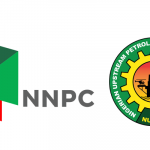Economy
FG Lauds Level of Investment at Sunti Golden Sugar Estates

By Adedapo Adesanya
The sugar plan of federal government has received a huge boost following the Sunti Sugar Estates investment in Mokwa, Niger State. Minister of Industry, Trade, and Investment, Mr Niyi Adebayo, paid a courtesy visit to the plantation on Thursday, December 12, 2019.
During the visit, the Minister expressed surprise at the level of investment at Sunti Golden Sugar Estates, describing it as the largest under the Sugar Backward Integration Policy of the federal government.
He said the plan of the President Muhammadu Buhari-led administration was put in place to attract over $1 billion annually in local and foreign direct investments, with estimation that it should guarantee creation of over 100,000 jobs in the next 10 years.
The Minister praised the effort of having a production target of over 1,500 tonnes by the end of 2019, further describing the Sugar Estate’s investment as laudable. He added that with the capacity, it will provide more jobs and opportunities for many Nigerians.
“I just arrived at the Sunti Golden Sugar Estates in Mokwa, Niger State, for my assessment tour of the backward integration programmes in the sugar industry.
“On my tour of the Sunti Sugar Estates, I emphasized that I am quite impressed with the level of investment and planning that has gone into this enterprise. It is my hope that this will translate into more jobs and opportunities for all Nigerians,” he said. #SeeSuntiGSE.
“During my assessment tour, I had a great time learning how to harvest sugarcane at the Sunti Golden Sugar Estates farm, the largest investment under the Sugar Backward Integration Policy, which falls under the Nigeria Sugar Masterplan,” Mr Adebayo said further.
On its part, the management of the sugar estates said that over N64 billion had been so far invested and that this has produced a number of facilities, including a landing strip, roads, schools, clinics among others.
“The Sunti Sugar Estate has 17,000 hectares of arable farmland, a sugar mill with a capacity to process 4,500 metric tonnes of sugarcane daily and at full capacity.
“As at today, 3,000ha of sugar cane has been developed and is under pivot, sprinkler and furrow irrigation,” the company said.
Business Post reports that the Sunti Golden Sugar Estates is run by Flour Mills of Nigeria, a company listed on the Nigerian Stock Exchange (NSE).
Economy
Expect Naira Below N1,000/$1 with Dangote Refinery at Full Capacity—Otedola

By Adedapo Adesanya
Nigerian businessman, Mr Femi Otedola, has congratulated his billionaire friend, Mr Aliko Dangote, on the Dangote Refinery achieving its full nameplate capacity of 650,000 barrels per day, expressing optimism that this will further strengthen the Naira against the US Dollar in the currency market.
In an X post on Thursday, Mr Otedola described it as a transformative milestone for Nigeria and Africa, noting that the refinery’s operations could ease pressure on Nigeria’s foreign exchange reserves.
“I congratulate my friend and brother, @AlikoDangote, on the remarkable achievement of the Dangote Petroleum Refinery reaching its full 650,000 barrels per day capacity.
“More importantly, it is transformational for Nigeria and Africa. Supplying up to 75 million litres of PMS daily changes our energy narrative and conserving foreign exchange.
“With domestic refining now firmly underway after decades of reliance on imports, pressure on the foreign exchange market should ease significantly. I am optimistic that the Naira will strengthen meaningfully, and trading below N1,000/$1 before year-end is increasingly within reach,” he wrote.
Earlier today, it was reported that all key components, including the naphtha hydrotreater, isomerisation unit, and reformer unit, of the single train refinery are now operating steadily at 650,000 barrels per day. This enables the facility to produce up to 75 million litres of Premium Motor Spirit (petrol) daily, significantly boosting Nigeria’s domestic fuel supply and reducing reliance on imports.
The $20 billion refinery, Africa’s largest, began operations in 2023 and has been ramping up production amid challenges, including crude supply issues.
Mr Dangote announced plans in October 2025 to expand capacity to 1.4 million barrels per day, which would make it the world’s largest refinery, surpassing India’s Jamnagar facility.
Mr Otedola added that his best friend is investing an additional $12 billion in this expansion, including the production of polypropylene and Linear Alkyl Benzene for detergents, with work already underway.
“Aliko is not stopping here. He has embarked on an additional $12 billion expansion to increase refining capacity to 1.4 million barrels per day, alongside 2.4 million tons of polypropylene and 400,000 metric tons of Linear Alkyl Benzene for detergent production. Work has already commenced in earnest.
“Congratulations once again, my brother. Nigeria is proud of you,” he said.
Economy
Trade Facilitation: Customs Okays Lagos Free Zone Green Channel

By Modupe Gbadeyanka
The Nigeria Customs Service (NCS) has approved the activation of the Lagos Free Zone Green Channel to enable the seamless and controlled movement of Free Zone cargo directly from the Lekki Deep Sea Port to the Lagos Free Zone (LFZ).
This development makes LFZ the first and only zone in the country to operate a sanctioned green channel, reflecting globally recognised port-to-free-zone logistics and customs integration models successfully implemented in leading trade hubs in the Middle East and Asia.
With this, businesses in the Lagos Free Zone can now scale their industrial output with total peace of mind, as every consignment is protected by an unbroken chain of 24/7 CCTV surveillance, telemetry, and tamper-evident digital logs that ensure absolute cargo integrity.
This integration not only secures the supply chain but also builds unrivalled investor confidence by establishing a transparent, high-compliance trade environment monitored directly by the customs.
For manufacturers and distributors, the outcome is a predictable, ultra-fast logistics flow that solidifies LFZ as the most efficient regional hub for Nigerian and West African operations.
“This approval is a testament to our commitment to trade modernisation. The Lagos Free Zone Green Channel will enhance Customs visibility while significantly improving investor confidence in Nigeria’s Special Economic Zones,” the Comptroller-General of Customs, Mr Bashir Adeniyi,” stated.
On her part, the chief executive of LFZ, Mrs Adesuwa Ladoja, said, “The activation of the Lagos Free Zone Green Channel is the latest testament to our customer-centricity and our commitment to continually deliver enhanced ease of doing business for our tenants.
“The Green Channel solidifies the advantages of Lekki Deep Sea Port being physically and digitally integrated into our zone. We have effectively removed the ‘last mile’ uncertainty that has historically challenged Nigerian logistics.
“Our tenants no longer need to navigate the complexities of traditional port exits; instead, they benefit from a high-velocity, customs-integrated corridor that moves cargo with precision and speed.
“This is a game-changer for manufacturing and regional distribution, reinforcing Lagos Free Zone as the premier gateway for those looking to dominate the West African market.”
Economy
Dangote Refinery Finally Hits Full 650,000-Barrel Per Day Capacity

By Adedapo Adesanya
Dangote Refinery has reached its full capacity of 650,000 barrels per day following the successful optimisation of critical processing units, marking a turning point for Africa’s largest refinery, located in Lagos.
The $20 billion facility is now operating at full capacity, a world-record milestone for a single-train refinery.
This achievement comes after the completion of an intensive performance testing on the refinery’s Crude Distillation Unit and Motor Spirit production block.
According to the chief executive of Dangote Refinery, Mr David Bird, the refinery is now positioned to supply up to 75 million litres of petrol daily to the domestic market, a dramatic increase from the 45 million – 50 million litres delivered during the recent festive period.
The development can reshape Nigeria’s energy landscape and reduce the country’s longstanding dependence on imported refined products.
“Our teams have demonstrated exceptional precision and expertise in stabilising both the CDU and MS Block,” Mr Bird said. “This milestone underscores the strength, reliability, and engineering quality that define our operations.”
The refinery has completed a 72-hour series of performance test runs in collaboration with technology licensor UOP, a Honeywell company, to validate operational efficiency and confirm that all critical parameters meet international standards.
The tests covered the naphtha hydrotreater, isomerisation unit, and reformer unit, which together form the backbone of the facility’s gasoline production capability.
The milestone marks another achievement for the businessman and majority stake owner at the facility in his ambition to transform Nigeria from Africa’s largest crude oil producer into a refining powerhouse.
Since the commencement of the facility in 2016, it has faced numerous setbacks, including pandemic-related delays, foreign exchange challenges, and technical complications.
It was finally commissioned in May 2023 to help wean Nigeria off imported petroleum products, due to the chronic underperformance of its state-owned refineries.
Despite being Africa’s largest crude producer, the country has not been able to self-produce, even with four state-owned refineries with a combined capacity of 445,000 barrels per day. This has led to decades of high dependency on importation.
The Dangote refinery’s emergence at full capacity has the potential to eliminate this import dependence while positioning Nigeria as a net exporter to West African markets.
Yet, the refinery faces difficulty securing adequate crude oil supplies from Nigerian producers, forcing it to import feedstock from the US, Brazil, Angola, and other countries.
Mr Bird also confirmed that Phase 2 performance test runs for the remaining processing units are scheduled to commence next week, suggesting further capacity optimisation ahead.
The official emphasised the refinery’s commitment to “enhancing Nigeria’s energy security while supporting industrial development, job creation, and economic diversification.”
-

 Feature/OPED6 years ago
Feature/OPED6 years agoDavos was Different this year
-
Travel/Tourism10 years ago
Lagos Seals Western Lodge Hotel In Ikorodu
-

 Showbiz3 years ago
Showbiz3 years agoEstranged Lover Releases Videos of Empress Njamah Bathing
-

 Banking8 years ago
Banking8 years agoSort Codes of GTBank Branches in Nigeria
-

 Economy3 years ago
Economy3 years agoSubsidy Removal: CNG at N130 Per Litre Cheaper Than Petrol—IPMAN
-

 Banking3 years ago
Banking3 years agoSort Codes of UBA Branches in Nigeria
-

 Banking3 years ago
Banking3 years agoFirst Bank Announces Planned Downtime
-

 Sports3 years ago
Sports3 years agoHighest Paid Nigerian Footballer – How Much Do Nigerian Footballers Earn












